 Glory Be (Glory Broussard Mystery, #1) by Danielle Arceneaux
Glory Be (Glory Broussard Mystery, #1) by Danielle Arceneaux Narrator: Bahni Turpin
Format: audiobook
Source: supplied by the publisher via Spotify
Formats available: hardcover, ebook, audiobook
Genres: cozy mystery, mystery
Series: Glory Broussard Mystery #1
Pages: 272
Length: 8 hours and 47 minutes
Published by Pegasus Crime, Spotify on October 3, 2023
Purchasing Info: Author's Website, Publisher's Website, Amazon, Barnes & Noble, Kobo, Bookshop.org, Better World Books
Goodreads
The first in a vivid and charming crime series set in the Louisiana bayou, introducing the hilariously uncensored amateur sleuth Glory Broussard. Perfect for fans of Richard Osman’s Thursday Murder Club.
It’s a hot and sticky Sunday in Lafayette, Louisiana, and Glory has settled into her usual after-church routine, meeting gamblers at the local coffee shop, where she works as a small-time bookie. Sitting at her corner table, Glory hears that her best friend—a nun beloved by the community—has been found dead in her apartment.
When police declare the mysterious death a suicide, Glory is convinced that there must be more to the story. With her reluctant daughter—who has troubles of her own—in tow, Glory launches a shadow investigation into Lafayette’s oil tycoons, church gossips, a rumored voodoo priestess, nosey neighbors, and longtime ne'er-do wells.
As a Black woman of a certain age who grew up in a segregated Louisiana, Glory is used to being minimized and overlooked. But she’s determined to make her presence known as the case leads her deep into a web of intrigue she never realized Lafayette could harbor.
Danielle Arcenaux’s riveting debut brings forth an unforgettable character that will charm and delight crime fans everywhere and leave them hungry for her next adventure.
My Review:
Like most amateur detectives, Glory Broussard begins her first investigation because it’s personal. Her best friend is dead, and the police have ruled that death a suicide. A decision that Glory refuses to believe.
Glory had known Amity Gay since they were little girls in pinafores, and for all the 60-some-odd years of their lives that followed. Glory knew Amita Gay as well as she knew herself, and her friend was looking forward to life, not running away from it.
And through bitter experience, Glory is all too aware that the police, in Louisiana and elsewhere but perhaps especially in Louisiana, discount and disregard the deaths of black people in general and black women in particular.
Because that’s the way it always has been, and in spite of changes on the surface, that’s the way it still is.
So Glory, amateur detective, professional busybody and successful bookmaker (yes, I mean gambling and not bookkeeping) does a bit of surreptitious reconnaissance in her late friend’s apartment and discovers a whole lot of paperwork about a chemical plant that the big company in Lafayette wants to construct right next to a poor black town so they can make even more money and spread more cancer – not necessarily in that order to Glory’s cynical mind.
While the police might have left the paperwork behind because it wasn’t an actual part of the crime scene, Glory knows they didn’t search at all because she found a box of fentanyl-laced lollipops in the back of Amity Gay’s closet. Something that would definitely have been found and confiscated in even a cursory search.
Which means that obviously no search was done, that the police are rushing to judgment because its easier for them – and possibly for the big company with those chemical plant plans.
Glory will just have to nose her way around Amity Gay’s old friends, Glory’s own new enemies and figure out which of the possible parties and motives is responsible for the death of her best friend.
The last thing Glory needs to add to her already overwhelming to-do list is figuring out what her daughter, a successful New York City attorney, is doing back in Lafayette, minding Glory’s business and cleaning up her house. Or, for that matter, figuring out what has the city all fired-up to condemn her house.
Or even, heaven forbid, whether or not her dearest friend, a professed Catholic nun, had been doing something unholy. Again.
Escape Rating B: Glory Broussard does not hold back. Ever. Not within the confines of her own head as she tells this story, and not out loud, either. She’s certainly an acquired taste for her friends and neighbors, and quite possibly for the reader as well.
Glory does not suffer fools, neither does she let said fool out of her sight without telling them that she thinks they are one. Sometimes in great detail. In other words, Glory is a lot, and not exactly universally beloved – or even respected.
To the point where it’s easy to understand why her daughter, successful New York City attorney Delphine, wishes she could get her mother to just shut up now and again, especially when faced with city officials who want to condemn Glory’s house. Not that Glory doesn’t get the best of that situation – along with a whole lot else – in the end.
But part of Glory’s charm, and certainly part of the charm of the story as a whole, is Glory’s bone-deep authenticity. It’s certainly not Glory’s honesty, because she doesn’t seem to have an honest bone in her body – not even in reference to herself and the depression she has sunk into over the years.
What does ring true, particularly in audio, is the relationship between Glory and Delphine, that ‘roses and thorns’ kind of love that can exist between mothers and their adult daughters. Part of both the compulsion to finish this mystery and the difficulty of doing so for this reader is that I heard the echo of every single argument I had with my own mother in the exchanges between Glory and Delphine. That roses and thorns observation was heartbreaking because it felt so very true.
But the story, the mystery, and the eventual, hard-won mutual respect that arises between mother and daughter, follows Glory’s stubborn pig-headedness from something that everyone told her should be left well enough alone to a conclusion she almost wishes she’d never uncovered.
She’s left with the realization that too many of the people she believed in have feet of clay up to the knees. And to console herself, in the end, that justice has been done, along with the new lease on life that becoming an amateur detective has brought her.
Readers, on the other hand, can console themselves with the fact that Glory will be back on the case in another mystery this coming fall!

TLC tour schedule:
Thursday, February 15th: @booksandthemes
Friday, February 16th: @naesreadingnook
Friday, February 16th: @booksandcoffeemx
Saturday, February 17th: @bookitqueen
Sunday, February 18th: @laura_cover_stories
Monday, February 19th: @idreamofthelibrary
Tuesday, February 20th: @books_and_biewers
Wednesday, February 21st: @simplyreadwithv
Thursday, February 22nd: @booksnbikram
Friday, February 23rd: Reading Reality and @reading_reality
Saturday, February 24th: @spaceonthebookcase
Saturday, February 24th: @thereadingchemist
Sunday, February 25th: @kristis_literary_corner
Monday, February 26th: @karen_runwrightreads
Monday, February 26th: @sometimesrobinreads on TikTok
Tuesday, February 27th: @
Wednesday, February 28th: @readthisandsteep
Thursday, February 29th: @djreadsbooks

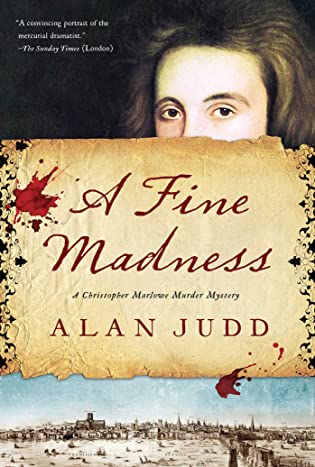 A Fine Madness by
A Fine Madness by 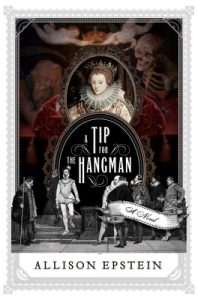 In other words, I was hoping for something that would be a slightly different take on the marvelous version of Marlowe’s story told in last year’s terrific and utterly absorbing
In other words, I was hoping for something that would be a slightly different take on the marvelous version of Marlowe’s story told in last year’s terrific and utterly absorbing 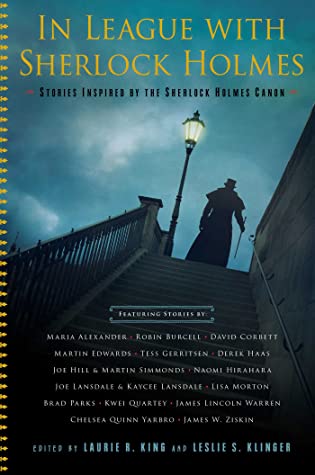 In League with Sherlock Holmes: Stories Inspired by the Sherlock Holmes Canon by
In League with Sherlock Holmes: Stories Inspired by the Sherlock Holmes Canon by 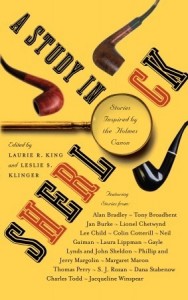 Because I’m a sucker for a good Sherlock Holmes pastiche, and in the right mood even for a bad one, I’ve eagerly anticipated each of these collections as they’ve appeared and I’ve read every single one of them, beginning with the very first,
Because I’m a sucker for a good Sherlock Holmes pastiche, and in the right mood even for a bad one, I’ve eagerly anticipated each of these collections as they’ve appeared and I’ve read every single one of them, beginning with the very first, 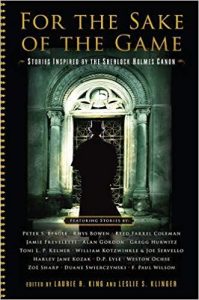 James W. Ziskin’s The Twenty-Five-Year Engagement is a classic pastiche, featuring the original Holmes and Watson solving a case that was so old and so cold no one even knew it was a case. It’s not the first time, that the unexpected return of a person long-though deceased has provided new clues to an old murder for the Great Detective, and this one shows the deft hand of both the investigator and the writer in constructing – and solving – such a conundrum.
James W. Ziskin’s The Twenty-Five-Year Engagement is a classic pastiche, featuring the original Holmes and Watson solving a case that was so old and so cold no one even knew it was a case. It’s not the first time, that the unexpected return of a person long-though deceased has provided new clues to an old murder for the Great Detective, and this one shows the deft hand of both the investigator and the writer in constructing – and solving – such a conundrum.